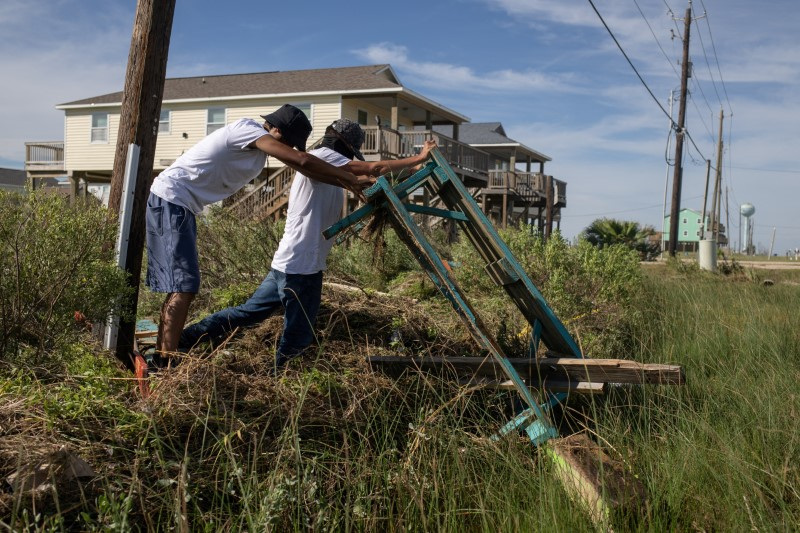By Lucia Mutikani
WASHINGTON (Reuters) - Unemployment in Texas rose moderately in July, suggesting that Hurricane Beryl had a minor impact on the labor market and confirming the sharp slowdown in U.S. job growth last month.
The Labor Department's state employment and unemployment report on Friday showed the jobless rate in Texas, which was slammed by Beryl in the second week of July, rose to 4.1% last month from 4.0% in June.
Nonfarm payrolls in the state decreased by 14,500 jobs amid a marginal drop in the leisure and hospitality sector and sharp decline in professional and business services.
There had been speculation that Beryl was a significant factor in the small rise in nonfarm payrolls in July and surge in the national jobless rate to near a three-year high of 4.3%.
"This is not material enough to account for anything more than a small part of the slowing in payroll gains in the month," said Conrad DeQuadros, senior economic advisor at Brean Capital.
The drop in Texas' payrolls compared to the monthly average increase of about 20,000 over the past year. Some economists had anticipated a sharp rebound in payrolls and drop in the unemployment rate in August as a result.
"This suggests some upside for August in the state, but likely not a windfall in hiring," said Ben Ayers, senior economist at Nationwide.
Unemployment rates increased in 13 states last month, with the largest rises in Massachusetts, Michigan, Minnesota and South Carolina. Michigan and South Carolina have a heavy concentration of motor vehicle assembly plants. Automakers typically idle assembly lines in July for new model retooling.
Jobless rates were little changed in 36 states and the District of Columbia. Payrolls rose in New York and Oregon, but dropped by 22,400 jobs in Missouri, mostly in manufacturing. That could reflect the temporary auto plant shutdowns.
Payrolls were more or less unchanged in 47 states and the District of Columbia.
"This aligns with a broader pattern of slower job gains, but there is little sign of a collapse within state labor markets," Ayers said.

Labor market momentum is slowing as 525 basis points worth of interest rate hikes from the Federal Reserve in 2022 and 2023 curb hiring. Layoffs, however, remain historically low.
The U.S. central bank has maintained its benchmark overnight interest rate in the current 5.25%-5.50% range for more than a year. The Fed is expected to start its easing cycle next month.